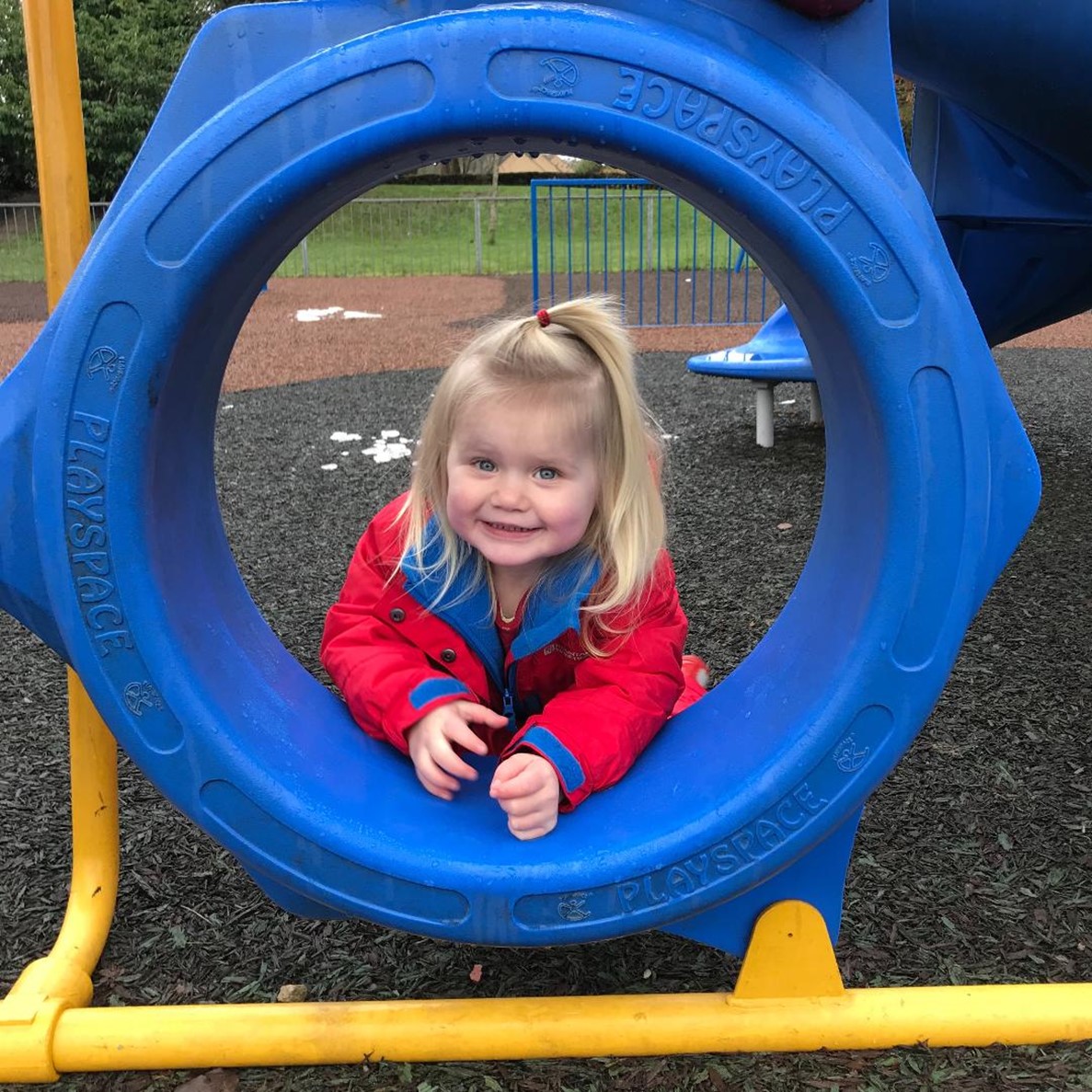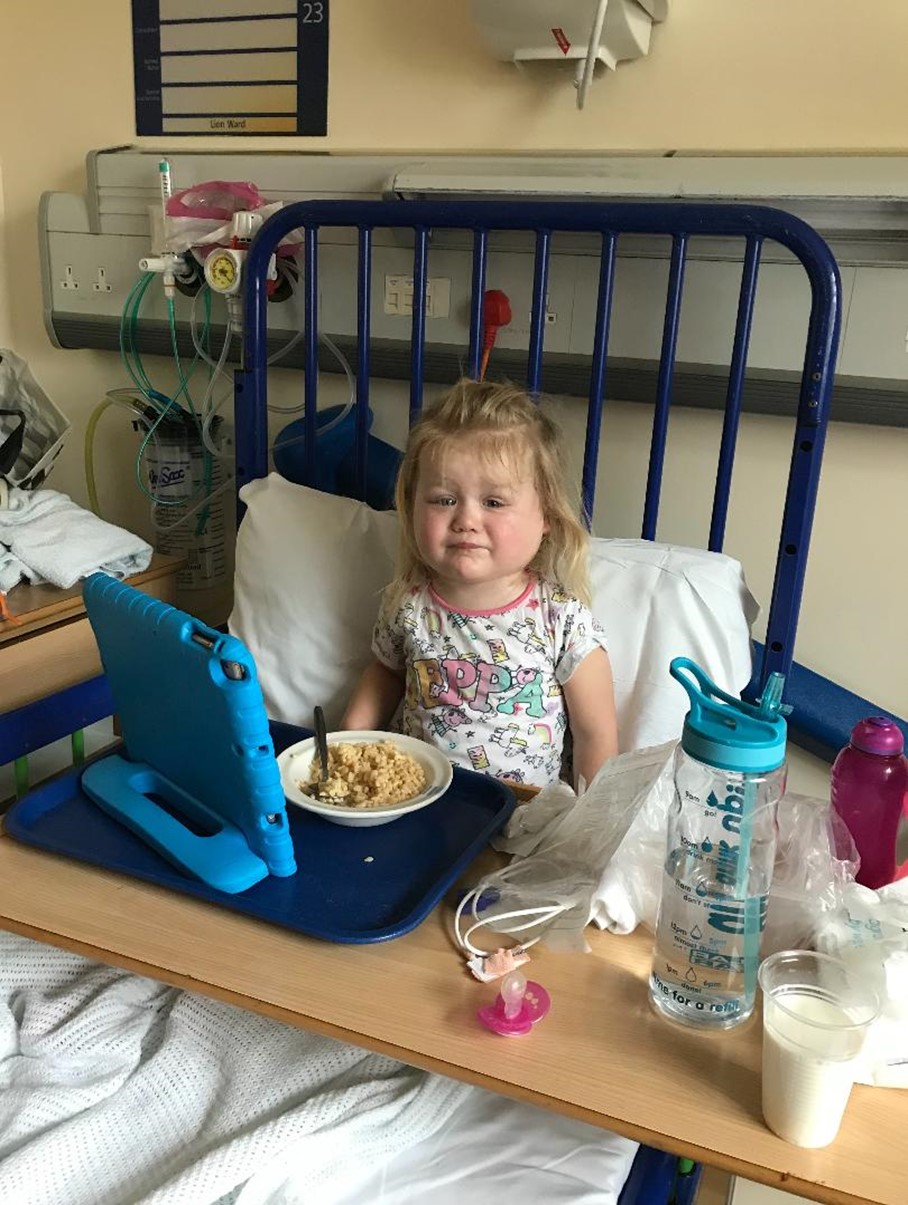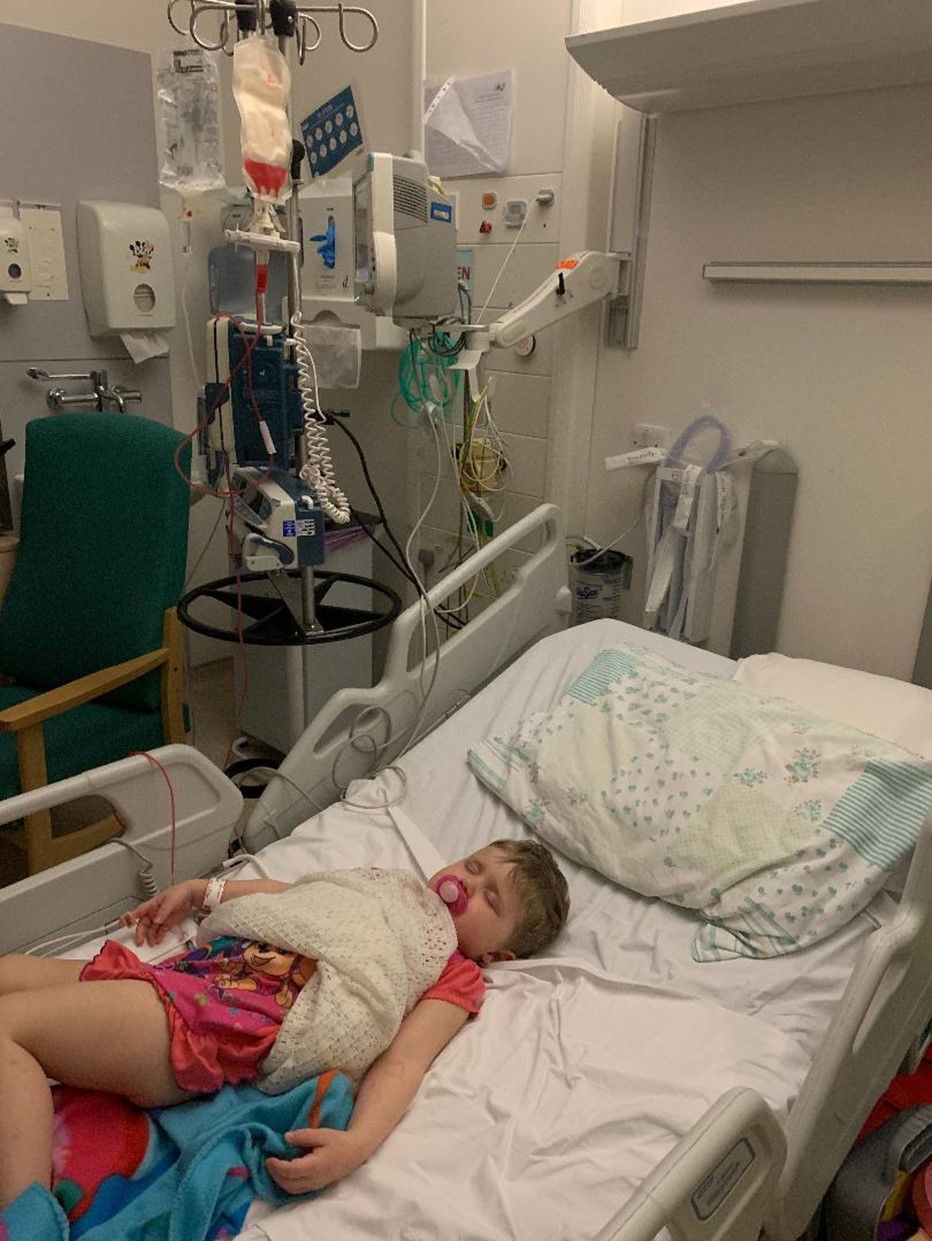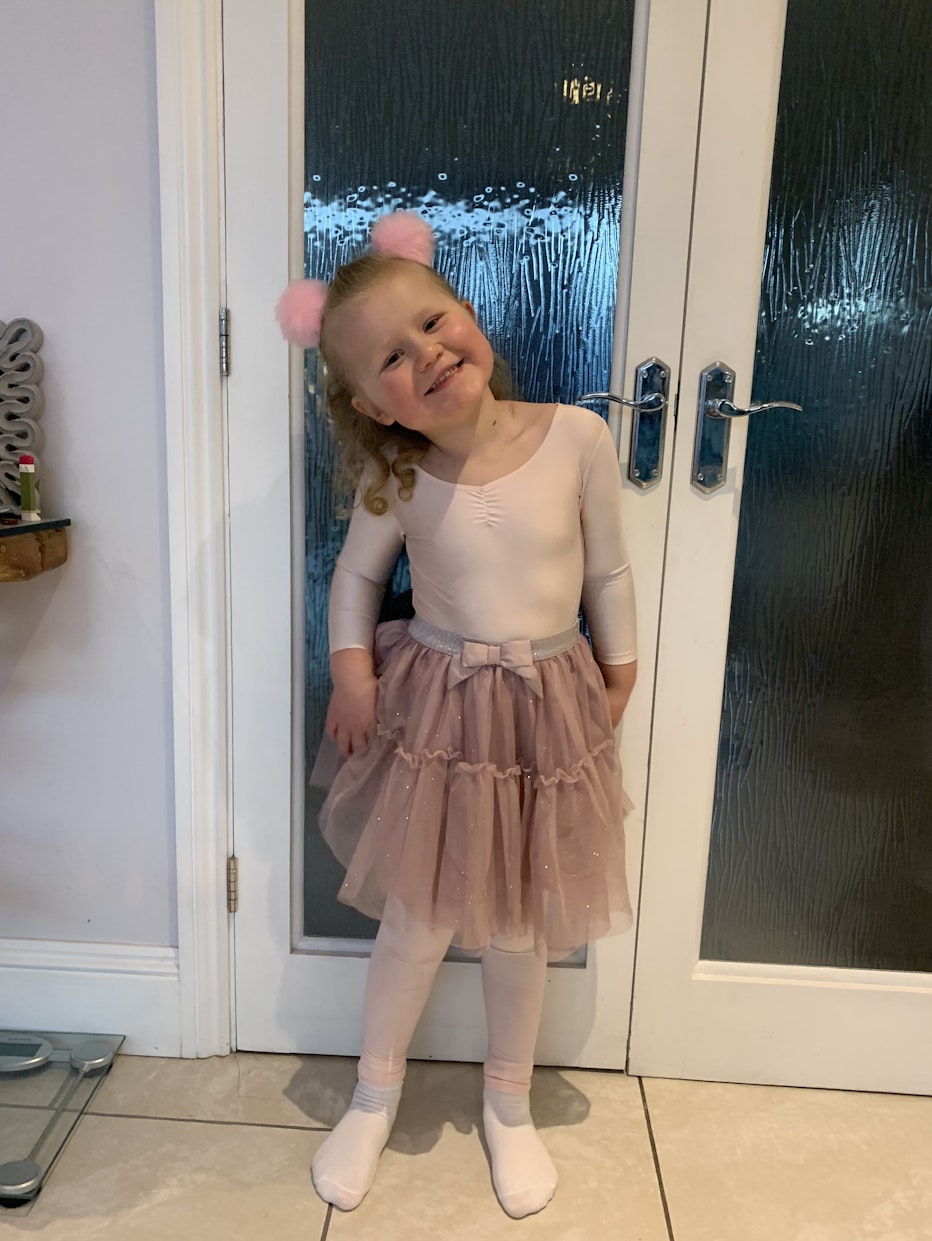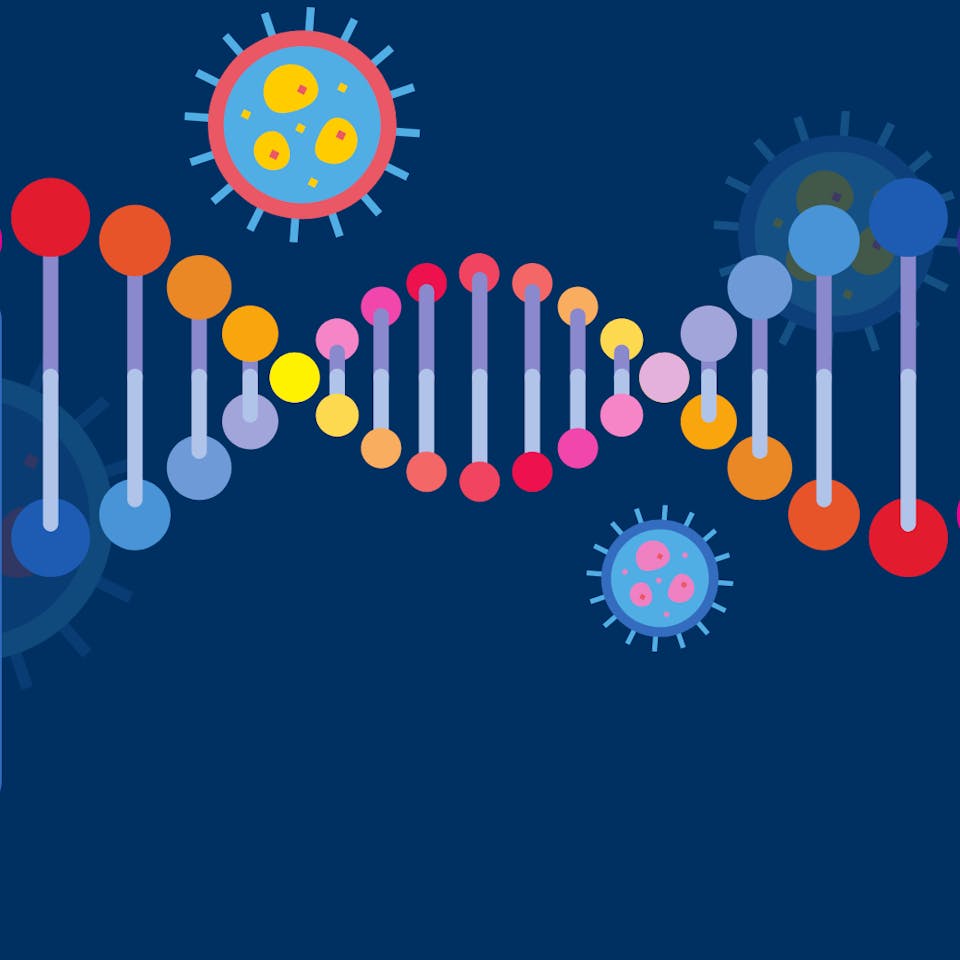
Annika was two years old when in April 2019 she was diagnosed with anaplastic large cell lymphoma (ALCL). Annika’s Challenge is raising funds for research into finding kinder treatments for ALCL, with less short- and long-term side effects.
Her mum Lisa shares her story…
Our nightmare began on March 8, 2019. Annika’s glands were up in her throat, so I took her to the doctor who diagnosed her with tonsilitis and put her on antibiotics. Five days later, she’d become even more unwell and the glands hadn’t gone down. A different doctor diagnosed her with an ear infection, putting her on different antibiotics, but again she got worse and her whole face started to swell.
Another doctor diagnosed her with potential mumps and sent us to A&E. She had an ultrasound and was diagnosed with lymphadenitis, an infection of the lymph nodes, and put on IV antibiotics. After five days the condition worsened. The doctors wanted to keep the antibiotics going, but I refused, and my husband Bjorn and I decided to get a private scan. There, they referred us to the John Radcliffe Hospital in Oxford with suspected lymphoma.
On April 2, Annika was diagnosed with anaplastic large cell lymphoma (ALCL). This came as a huge shock - just a couple of months before we’d been on a family ski holiday to France, and she was absolutely fine. Now, we were being told she had cancer.
Everything in our lives changed from that day forward.
ALCL is a rare type of children’s cancer - with only 80 children in Europe diagnosed a year - but with high rates of cure (90%). However, Annika’s chances were knocked massively when they found it had spread to her central nervous system. Again, this was extremely rare for this type of lymphoma, with only 2% of all cases spreading to the brain.
She had five months of one of the most aggressive chemotherapy regimens possible, which she tolerated fairly well, but the side effects were horrendous. She lost her hair but that was nothing compared to the nose bleeds, mucositis (severe ulcerated mouth), weight loss and more. Despite being so poorly, she was so brave and faced it all amazingly well.
At the end of the five months, all her lumps had gone away, and her treatment seemed to have worked, with an MRI scan a month later confirming partial remission. But just the day after, lumps appeared in her neck again. We found out she had relapsed and unfortunately, again in the brain.
Annika started a new chemo that wasn’t as harsh as what she’d been on before and the lumps disappeared quite quickly. She also received intrathecal injections into her spine to get on top of the cells in her spinal fluid. It didn’t work. Two months later, in early November, we were told she’d relapsed again, and it was the worst case, internationally, that they’d seen in the brain.
The prognosis wasn’t good. Her only chance of survival was to get her into remission and to a bone marrow transplant.
I’d been looking prior to relapse at alternative treatments and had searched worldwide talking to specialists. A drug called lorlatinib has been developed for adults who had small cell lung cancer. Annika’s cancer had the same genetic mutation called ALK, and this drug was an ALK inhibitor. I asked our consultant to look into this drug as it penetrated the blood-brain barrier, which no other current drugs did. We eventually got this drug on compassionate use (free) through the NHS, as basically Annika was a trial case.
She started taking it towards the end of November and a few weeks later, on December 23, she had a scan. On Christmas Eve, we received the present to beat all other presents - we found out that she was in remission!
Lorlatinib kept her in remission until January 29, when we travelled to Manchester to get her life-saving bone marrow. She had four days of chemo and three days of total body irradiation and received her new immune system on February 7, 2020. It was tough, and she lost her hair for the second time, but no tougher that the horrendous chemo she received first time round. We’ll always be thankful to her donor for saving her life.
What she found hardest during this time, was that she couldn’t see her brother for three weeks, only me, her dad and grandparents. She’d ask about Axel all the time and her face lit up when she got to see him again. We got home 35 days after she received the cells, with Annika sleeping through as it was about 10 at night.
Unfortunately Annika relapsed again in October 2021. She came off her miracle drug in July 2021 after being on it for 14 months post transplant and it took just 3.5 months for the cancer to return. A small lump appeared on her neck and within 3 days she had a horrendous seizure. This cancer is super aggressive and had spread to different parts of her body that it hadn’t been before including her brain again. This had caused the seizure. She is now back on Lorlatinib and so far it's working and has stabilised her cancer. We owe it to this drug for saving her life again.
Throughout everything, she’s been truly amazing. Her resilience and strength would put most adults to shame, including myself. She just gets on with it and not once has she complained. Her hospital life became very normal to her and she talks about it all the time. Playing ‘Doctors and Nurses’ is even her favourite game.
Annika’s doing really well and just loves to entertain. She’s so funny and makes us laugh all the time. She’s such a performer, and when we FaceTime with her grandparents, she’s always dancing and making them smile! She also loves being outside. Even in freezing temperatures, she’d be outside for hours if she could. She loves playing on the swings, trampoline and climbing frame, and is always running around playing football. Axel’s completely different, and she has to coax him outside, but they love playing together.
Annika’s future is unknown, so it is more important than ever that we look to raise money for research into her cancer. Lorlatinib is not curative and we need more options to beat this beast.
We were inspired to name the fund after Challenge Anneka, a ‘90s TV programme, where the presenter was given different challenges to do. We’d always say, “It’s another challenge we’ve got to overcome, another mountain we’ve got to climb.” So, we thought we’d change it to Annika’s Challenge, as it sums up Annika perfectly. Whatever challenge she gets given; she always overcomes it.
And, knowing Annika, she will want to get involved and will be leading the charge.
Make a donation to Annika's Challenge
.
Open an online fundraising page for Annika's Challenge
.
Set up a regular Direct Debit donation to Annika's Challenge
.
Fundraising pages
Text CCLGANNIKA to 70085 to donate £5.
CCLG will receive 100% of your donation. You may also be charged for one text message at your network’s standard or charity rate.
You can make a donation or pay in funds raised by cheque, payable to CCLG, to CCLG, Century House, 24 De Montfort Street, Leicester LE1 7GB. Please ensure you make it clear that the donation is for Annika's Challenge so that your donation is allocated to the correct fund.

